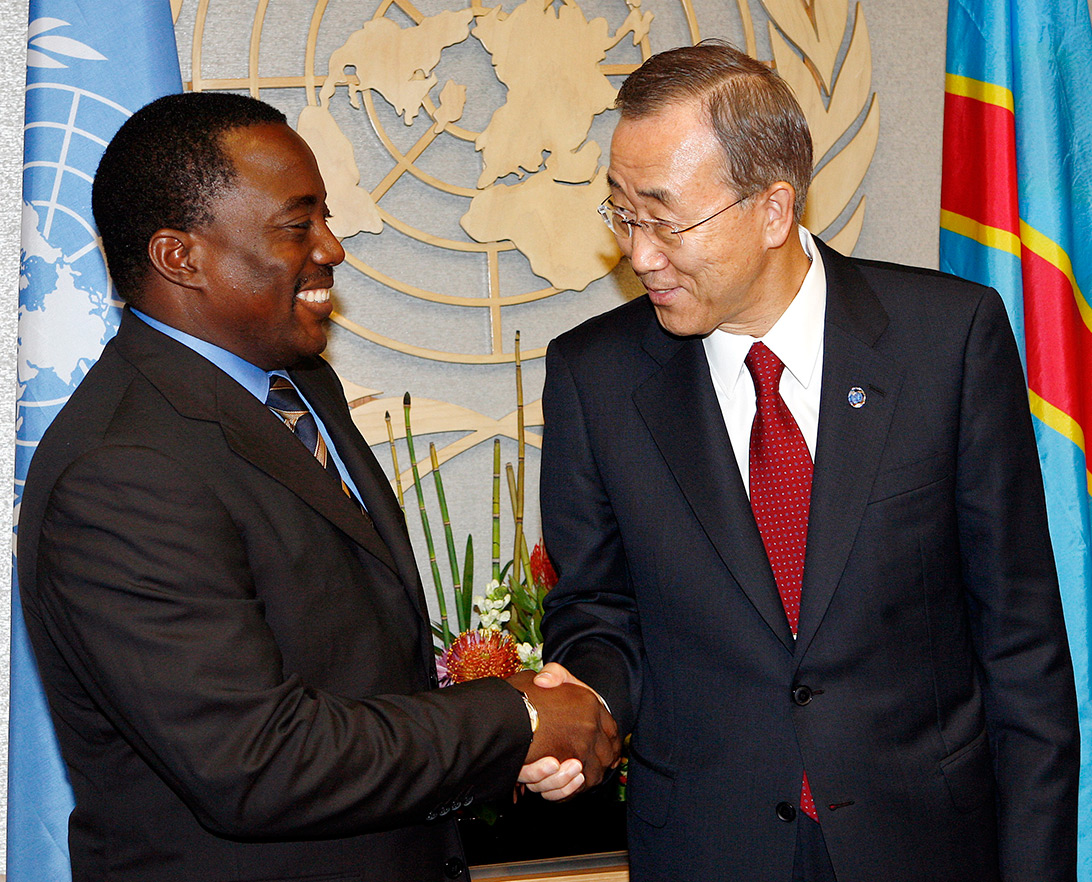
Editor's Note: This op-ed originally appeared on Global Post.
As global leaders meet in New York this week at the United Nations, pressing issues from a rising violent anti-American protests in the Middle East to rising sea levels in the arctic will be on the world’s table. But one often unknown and underserved humanitarian disaster is finally getting a look from the international community and from the U.N. Secretary General, Ban Ki-moon, himself.
The conflict in eastern Congo has taken the lives of over 5.5 million people over the past 18 years. Constant war, oppression, sexual violence, and natural resource exploitation have created a hell-on-earth for communities living amongst this ever-changing battlefield. Fueled by powerful and well-armed men and driven by greed and power, those responsible for this constant conflict are accountable to nothing but the rule of the gun. According to recent reports from the U.N. Office of the Coordination for Humanitarian Affairs, or OCHA, roughly 400,000 people have been displaced in Congo this year from renewed conflict.
The conflict in eastern Congo is not just a Congolese problem existing in a vacuum—far from it. The war has a fundamental regional component that draws in not only neighboring Rwanda and Uganda, but many international states as well—particularly the U.S.
The conflict is currently at a critical turning point, and the risk of renewed international war hangs in the balance. Driven by the Rwanda-backed rebellion known as M23, armed elements with security and economic interests loyal to the Rwandan military and governance patronage networks in eastern Congo have been pitted against the Congolese state and international community. At stake is control of the resource rich provinces of eastern Congo, the survival of the Congolese state, and the stability of the Great Lakes Region of Africa. M23 and the Congolese army are now in a dangerous stalemate, which could explode into a much larger humanitarian catastrophe at any point.
A June 2012 United Nations Group of Experts report demonstrated direct links between the highest levels of government in Rwanda, and the creation, composition, and deployment of the M23. This information was corroborated by a number of governmental intelligence assessments and human rights NGO investigations. Since then, several western governments including the United States have publicly condemned the rebellion and cut or suspended economic assistance to Rwanda—demanding that Rwanda immediately suspend all support to M23. However, those cuts seem to be having little effect, as Rwanda continues aid to M23 yet denying involvement in the face of damning evidence.
The Presidents of Congo and Rwanda have been meeting face to face recently through regional efforts to deal with the recent crisis, but unfortunately little progress has been made on the political, economic, and security issues that plague relations between the two countries.
On Thursday, Ban Ki-moon will host a meeting between Congolese President Joseph Kabila, Rwandan President Paul Kagame, and other world leaders at the United Nations General Assembly, presenting a chance to ignite a viable peace process. It is time to put together a process with strong African and international backing that recognizes the conflict in eastern Congo is fundamentally a political one, and that has both the stature and incentives to bring the parties to the table to negotiate their political, economic, and security interests peacefully.
At Thursday’s meeting, those parties involved must lay the groundwork for such a peace process. Longstanding issues such as the return of refugees from Rwanda to Congo, continued natural resource exploitation and minerals smuggling, accountability for war criminals, and shared border security must be addressed to achieve a lasting peace.
The Obama administration also has a critical role to play. The U.S., U.K., and other key donors should use all available levers to incentivize Rwanda to end its support to M23 and begin dismantling the rebellion. The US and other donors should condition approval for the $135 million World Bank general budget support to Rwanda on those specific actions. The Obama administration and UN Security Council should also place targeted sanctions on Rwandan and other officials identified by the UN Group of Experts as aiding M23, as this constitutes a violation of the U.N. arms embargo on Congo. Finally, the U.S. should engage actively in the negotiations and state publicly that political and economic issues should be addressed.
Eastern Congo is once again on the precipice. Strong commitment from both regional and international partners to the creations of viable peace process is needed. Ban Ki-moon and President Obama, the war-weary Congolese people deserve their attention to make that happen.
Photo: U.N. Secretary General Ban Ki-moon and President Joseph Kabila (AP)

